23 Christmas Safety Tips You Need to Know, According to Home Experts

There’s no doubt winter is a magical time, filled with cozy fires, warm cocoa, and tons of holiday joy. But if you’re not taking extra precautions during Christmastime in particular, your winter wonderland can quickly turn into a holiday hazard. In fact, there are plenty of safety practices you might not even realize you’re ignoring right in your own home. Putting your Christmas tree up wherever you think it looks best or keeping candles lit that fill your humble abode with the scents of pine trees and gingerbread cookies? Not so fast! To make sure you have a happy and healthy holiday, we talked to home experts for the ultimate Christmas safety tips you need to follow.
1
Water your Christmas tree daily.
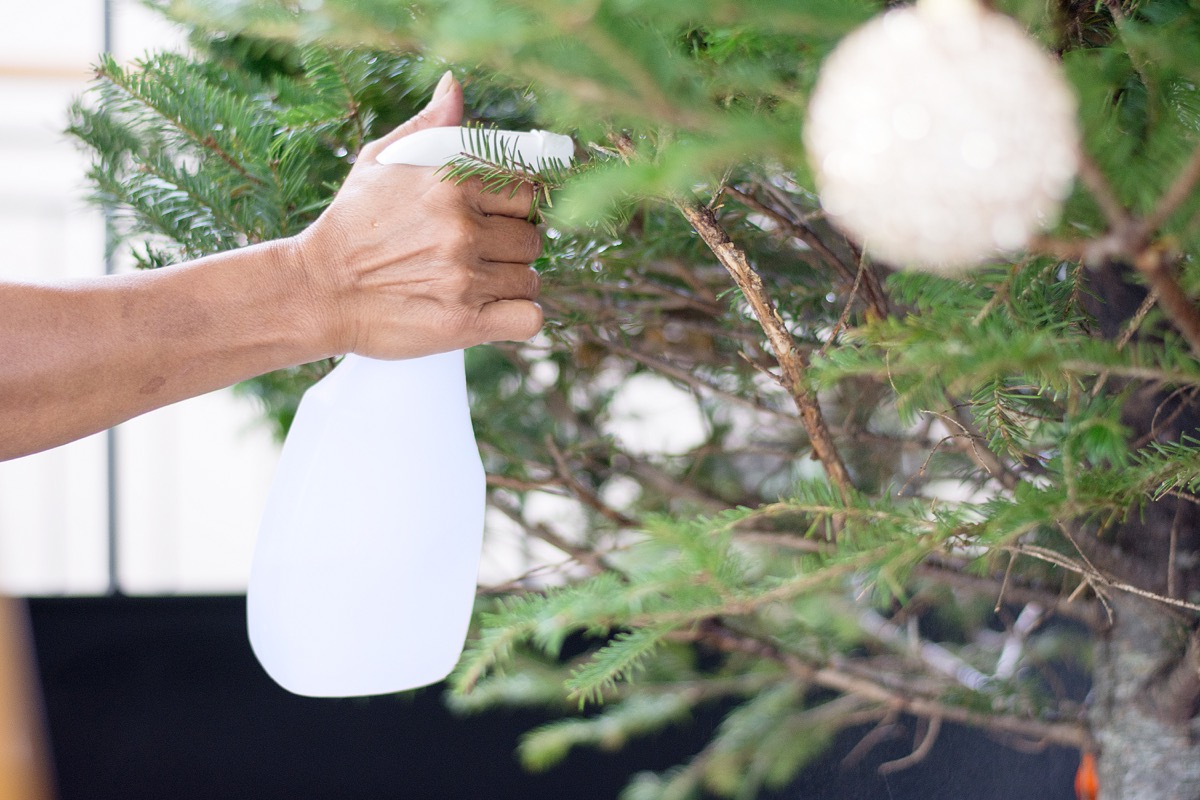
Christmas trees have the ability to go up in flames in the matter of moments, especially if they are dry and brittle. So it’s important to add moisture regularly. “Water your tree daily,” says Mark Scott, president of Mark IV Builders. “Never allow your tree stand to be empty of water and have two inches cut from the trunk to allow for better water absorption to the fresh wood.”
2
And keep it away from fire hazards.
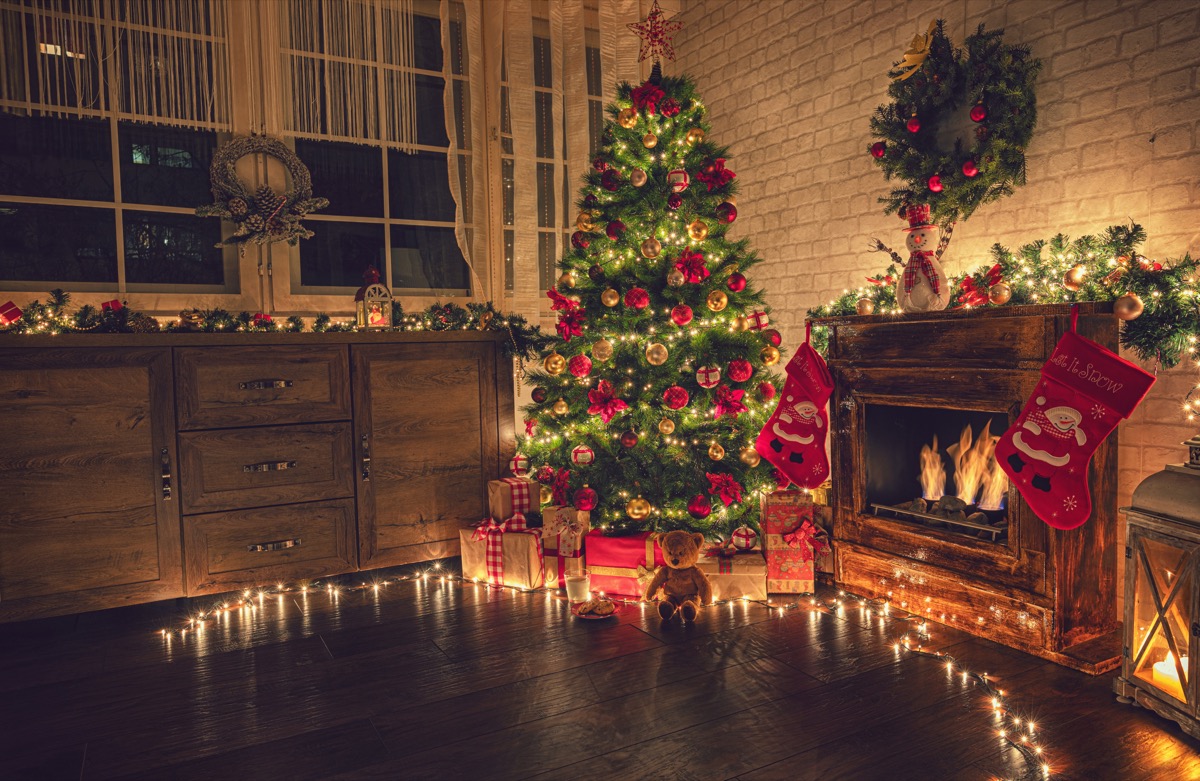
Sure, your Christmas tree may look beautiful in that one particular corner of your home, but make sure you aren’t sacrificing your safety by putting it there.
“If you’ve put up a Christmas tree, whether real of fake, just consider where it’s located and what other objects are around it,” says Matthias Alleckna, an expert energy analyst at Energy Rates.ca. “It’s no secret that, especially as they dry out, Christmas trees are basically kindling. If you look around your tree and you see that it’s within three feet of any candles, electric space heaters, or fireplaces, it’s a fire hazard.”
3
Use candles with care and caution.
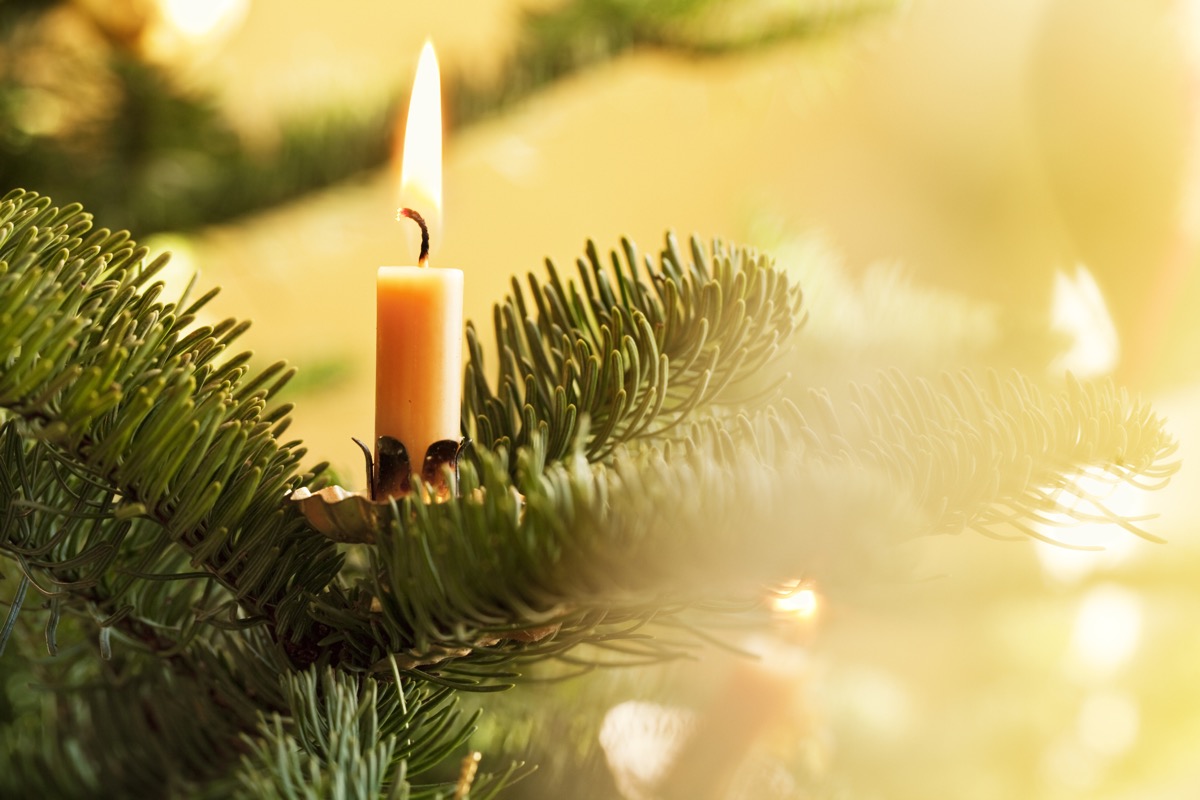
Your Christmas tree isn’t the only decoration you should be wary of this holiday season. According to the National Fire Protection Association, an average of 22 home candle fires were reported each day between 2013 and 2017, with the most occurring in December. The data also showed the top two days for home fires started by candles were Christmas Eve and Christmas Day, with more than half of home candle fires being the result of furniture, mattresses, bedding, curtains, or other decorations being too close to the flame.
4
Don’t overload your home’s electrical circuits.
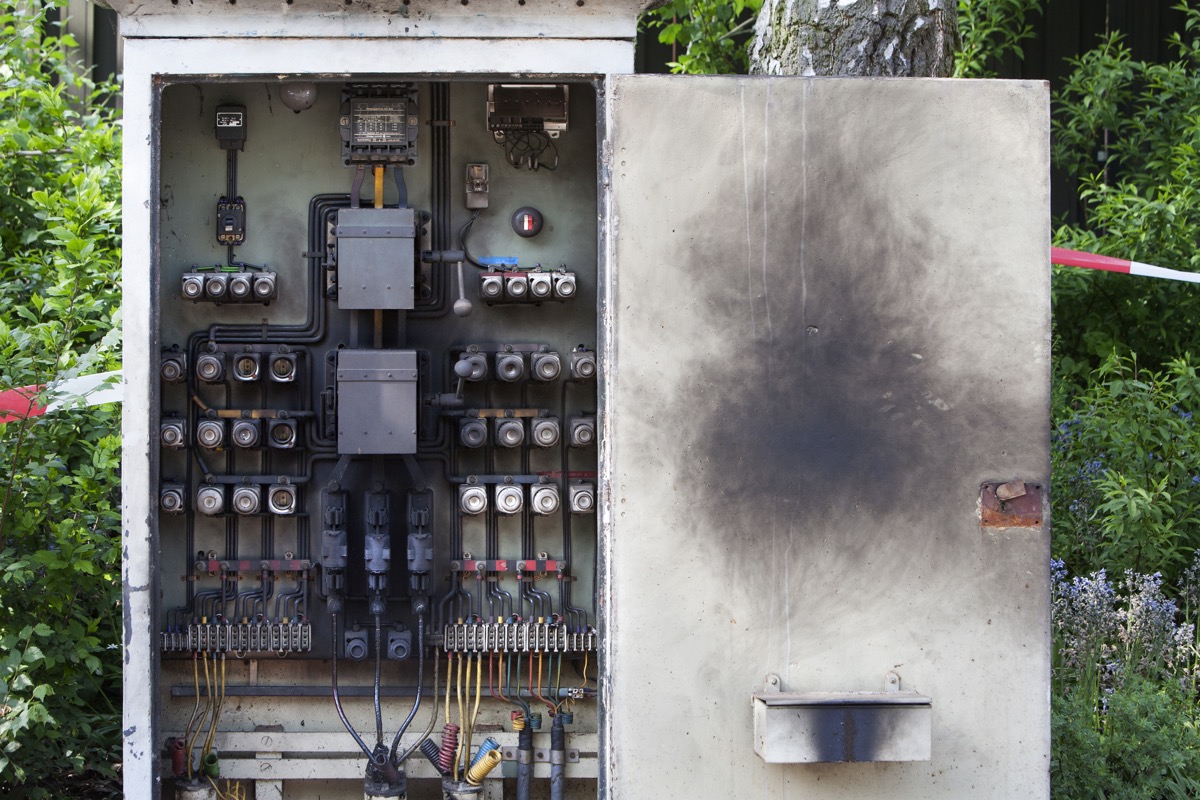
All of those holiday lights and decorations can be a big electrical burden. However, no matter how badly you want both your electric Rudolph figurine and the lights around your Christmas tree in your living room, don’t overload the circuits powering your home.
According to the pros at Mr. Electric, a “typical household circuit can power 70 strings of 50-bulb mini lights or 300 to 600 strings of 50-bulb LED lights.” Plus, you have to take into account any major appliances that are already plugged into existing circuits before adding decorations. So, if you plan to use any more power than the experts suggest, spread it across multiple circuits to prevent an overload.
5
Secure your home from possible break-ins.
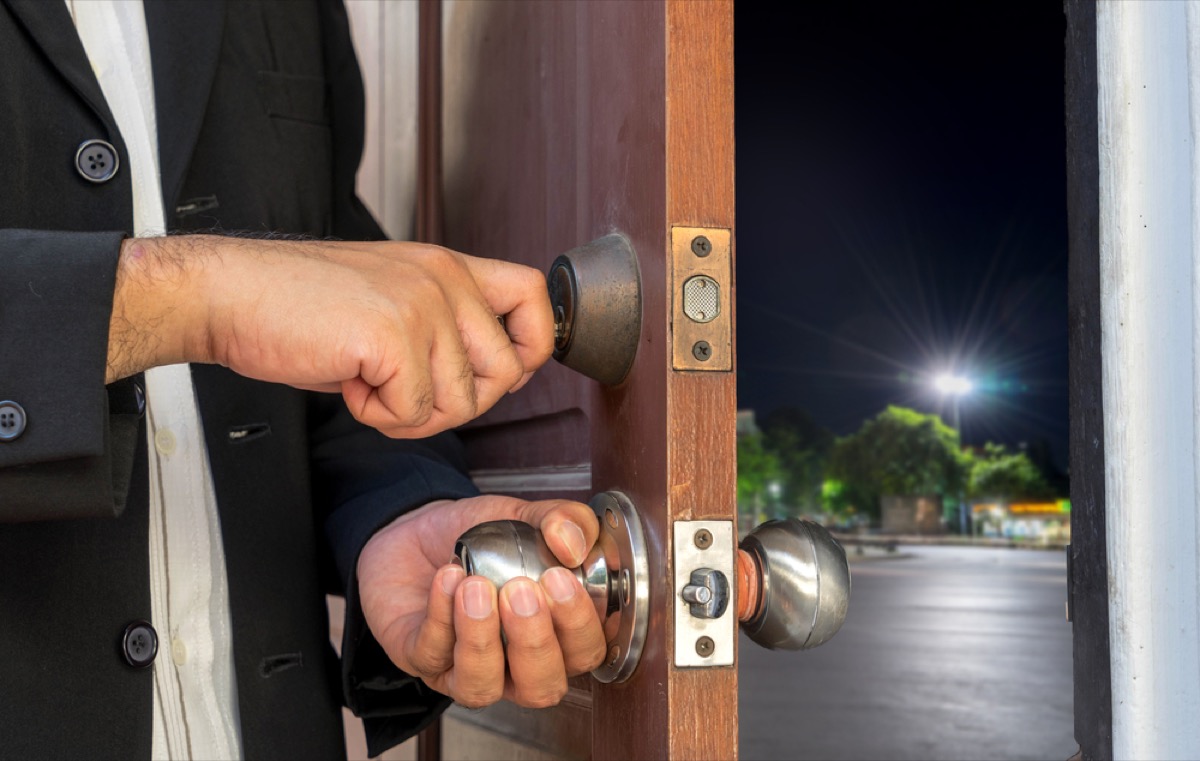
With potentially expensive Christmas gifts in the house and holiday travel leaving homes unoccupied, the possibility of a home break-in is an all-too-real concern every December. Lior Rachmany, CEO of Dumbo Moving + Storage, says his biggest tip for keeping your home safe from burglars is quite simple: Make sure your doors are secure.
“In most cases, the burglars will enter your house through the door, so your front and back doors are the first line of defense,” he says. “We recommend you invest in quality door locks, which will provide you with the necessary security and help you leave your home with more ease.”
6
And consider smart technology to protect your home.

Smart technology and keyless locks have made keeping your home safe so much easier. According to Will Ellis, founder of security consultant website Privacy Australia, smart devices can even make it appear as if you’re still home while you’re away.
“Smart plugs can be set on timers or controlled automatically, and some systems even have a built-in vacation mode which will randomly turn lights on or off during evening or morning hours to give the appearance that someone is home,” Ellis says.
7
Schedule packages to be delivered when you will be home to receive them.
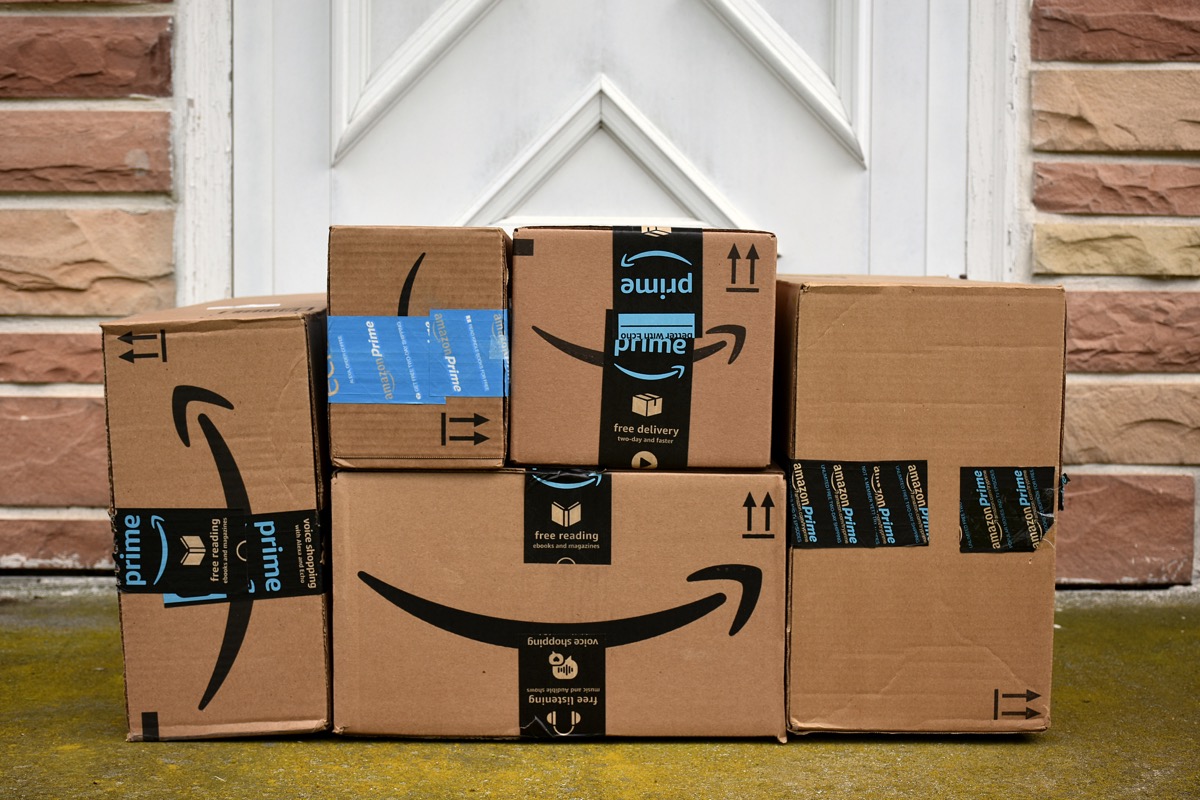
Online shopping during the holiday season is an easy way to get your gifts and avoid crowded retail stores, but it also comes with some risks. According to the experts at Guardian Protection, the increased number of packages we tend to receive these days has also sparked a rise in package theft. “Porch pirates prey on homes where packages are delivered during the day and no one is home,” the experts warn. “To avoid being a victim, consider when and where your packages are delivered. Choose times when someone will be home or have them delivered to your workplace or other spot that is more secure.”
8
Don’t share your holiday travel plans online.

Home security is not all about locking your doors and decorating carefully. When it comes to any holiday travel plans, avoid posting about them online. According to Brad Campbell with Riot Glass, social media is the first place burglars look to determine where to strike next. If they know no one will be home during Christmastime, that makes your house an easy target. Post any vacation photos after you return from your trip and have someone check in on your house frequently while you are away.
9
Detach hoses from spigots on the outside of your house.
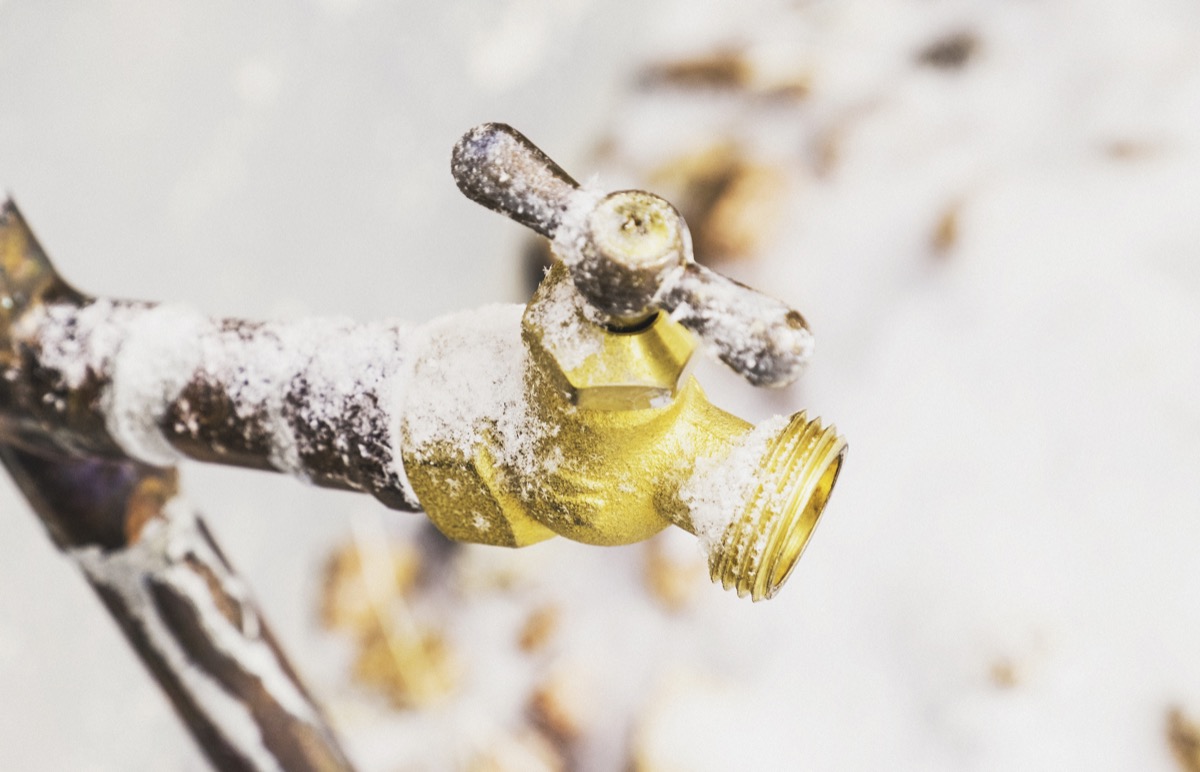
With the cold weather setting in, there are many precautions to take to keep your home in tip-top shape. Brittany Hovespain, owner of The Expert Home Buyers, says that during the Christmas season, she always tells her customers “to make sure they never leave a hose attached to a spigot outside when not in use.” Why? According to Hovespain, the water inside the hose can freeze and push frozen water back into your pipes, which can expand and crack them, damaging your water system and possibly flooding your home.
10
Clear the snow off your roof.
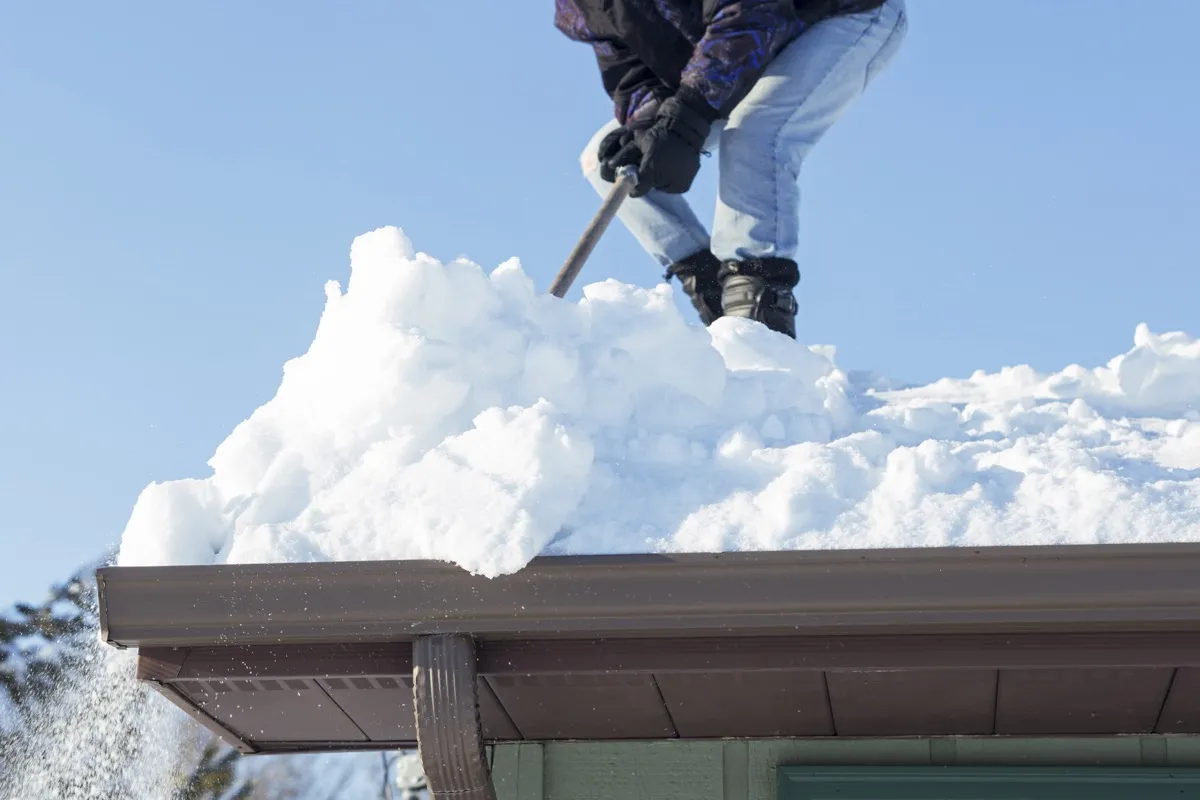
As scary of a thought as it is, it is very possible for your roof to give in during the winter. According to Lev Barinskiy, CEO of SmartFinancial, most roofs can handle up to 20 pounds per square foot of snow. If you’re doing the math, 10 inches of fresh snow weighs around five pounds per square foot, so that means your roof can probably only support four feet of snow. Barinskiy says to prevent “ice dams,” homeowners should clear their roof off after every six inches of snowfall.
11
Clean your chimney before building a fire.
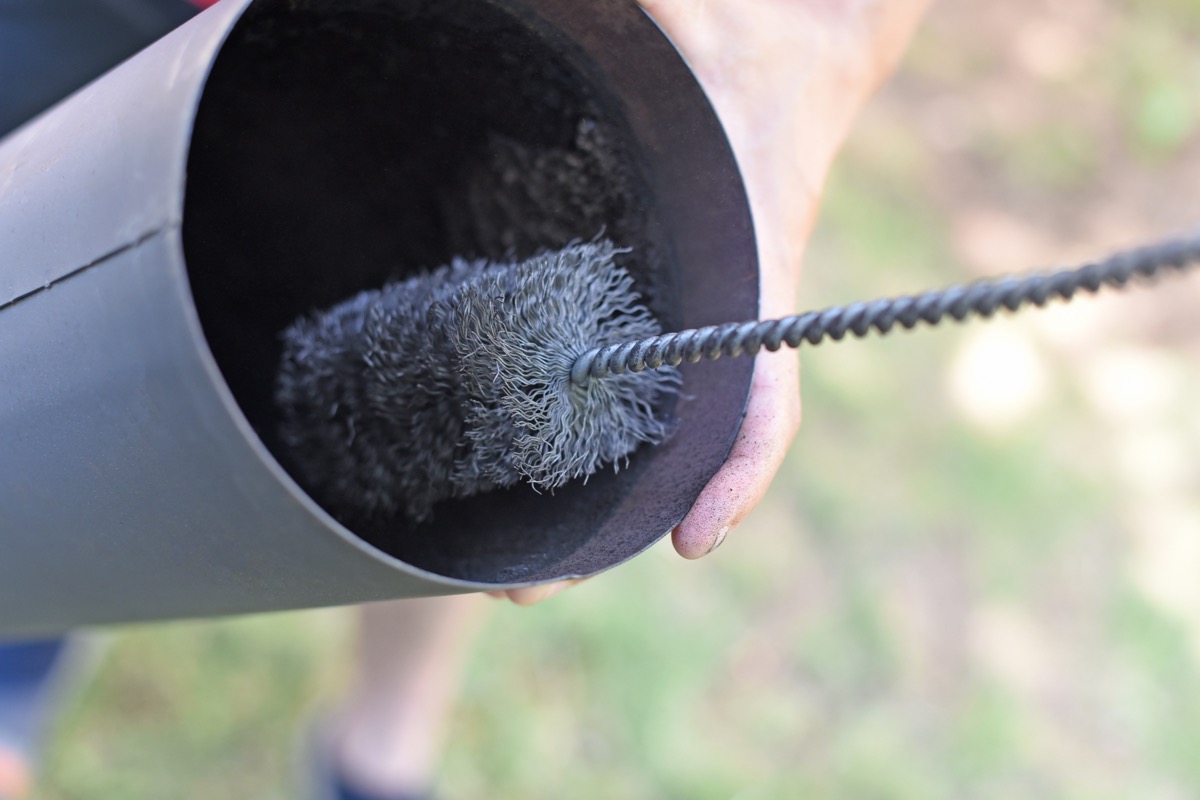
There’s no doubt you’ll want to crank up your fireplace on Christmas morning as everyone’s unwrapping presents, but don’t do it without making sure everything’s in order first. Peter Duncanson, disaster restoration expert for ServiceMaster Restore, warns homeowners to inspect their chimney before Christmas. He says that “if you see black and flaky creosote deposits, use a wire brush to scrub them away.” And using a flashlight, you should inspect for loose bricks, blockages, or debris.
12
Be prepared for a kitchen fire.
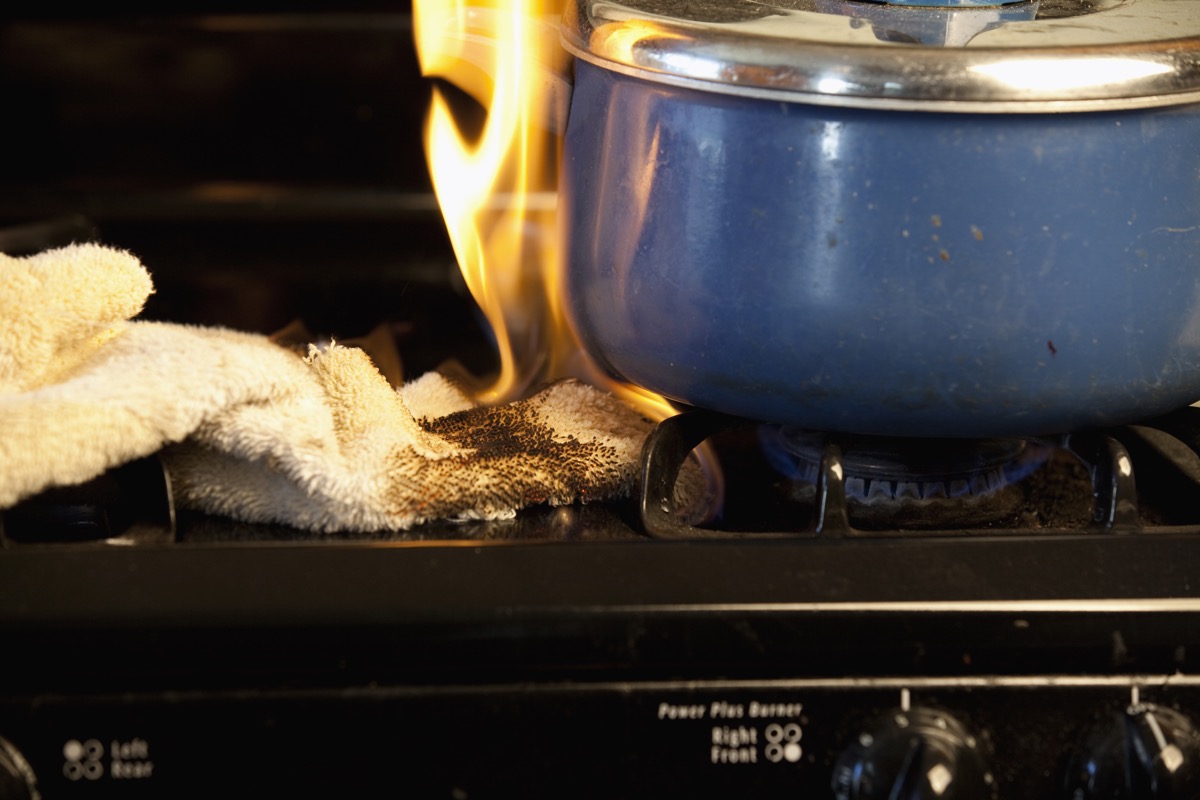
When it comes to using your kitchen during Christmas, make sure you’re prepared for the worst. Barinsky says that during Christmastime, “many inexperienced cooks are trying their hand at cooking a big bird for the first time in their lives.” And when a grease fire breaks out, they’re completely caught off guard.
Even worse, Barinskiy says many wrongly assume throwing water on a small fire will stop it, but the water actually only causes the flames to spread. Instead, he recommends homeowners clean their oven before using it, have working smoke detectors, keep a fire extinguisher in the kitchen, and never leave food unattended when it’s cooking.
13
Don’t use a deep fryer indoors.
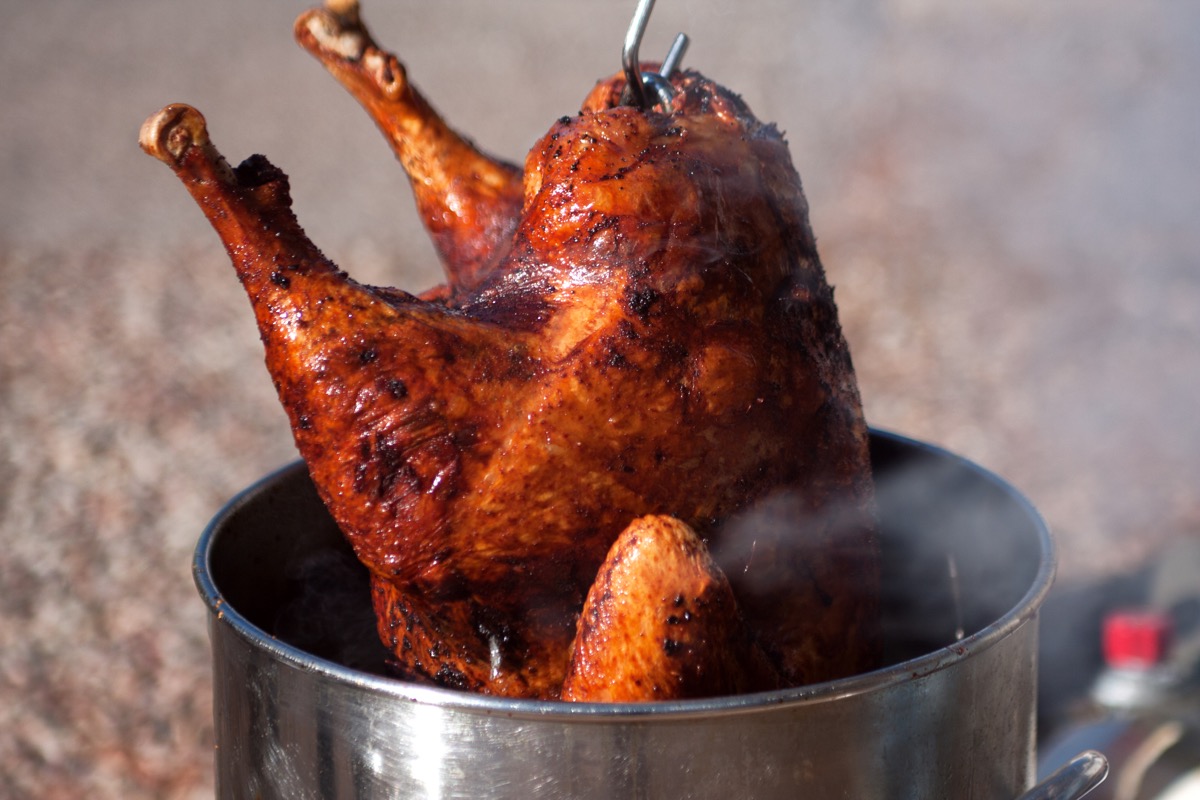
A good deep-fried turkey is essential for many families’ Christmas dinners. But the preparation process can easily cause a house fire if not done safely. Barinskiy says you should only deep fry your turkey outside, at least 10 to 12 feet away from your home, as well as any trees that could catch fire.
14
Warm up your car outside, not in the garage.
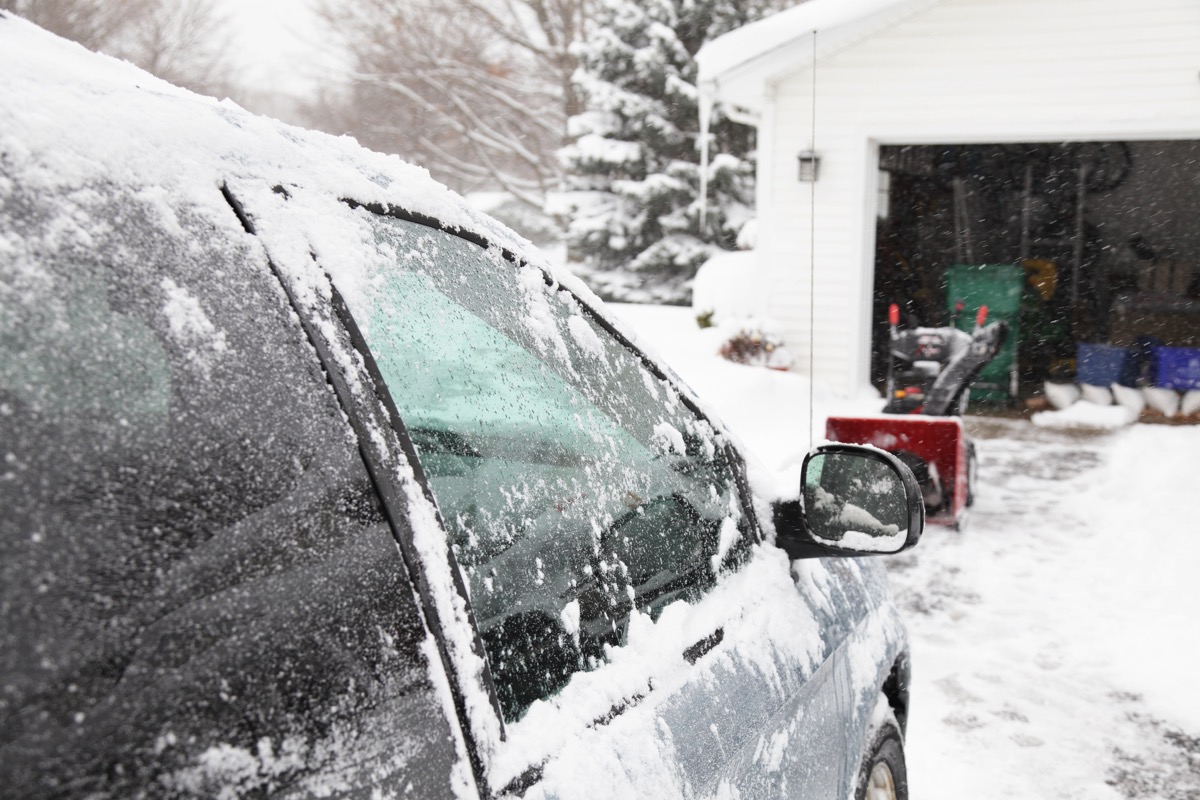
It may be tempting to go out to your garage and warm up the car while you’re waiting to head to your sister’s house on Christmas morning, but it’s highly dangerous to do so. The experts at First Alert warn people to not warm their car up or leave it running inside their garage, even if the garage door is open. The carbon monoxide fumes your car emits can easily spread into your home, poisoning people and pets alike.
15
Invest in a carbon monoxide detector.
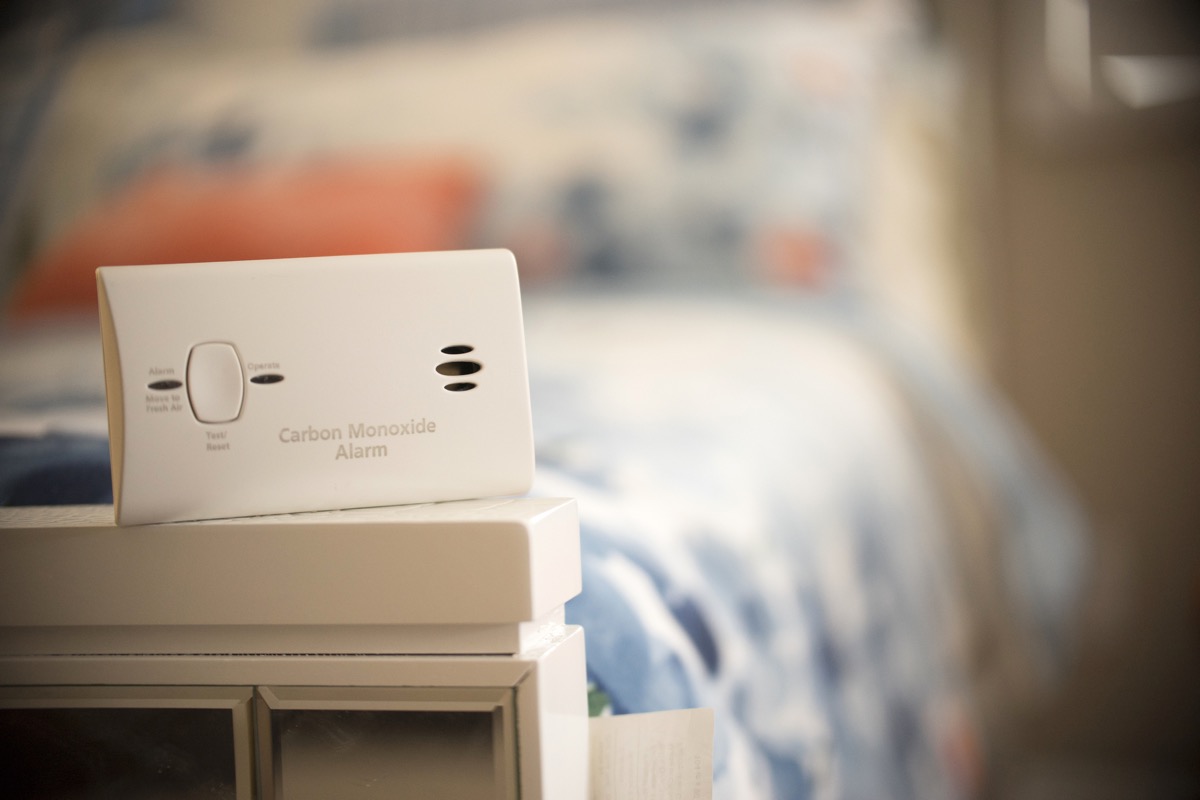
No matter what, your home should be equipped with a carbon monoxide (CO) detector. According to the Centers for Disease Control and Prevention (CDC), fatal CO poisonings increase during the winter months because heating systems are continuously running. At least 430 people die in the United States each year from accidental CO poisoning, but a working detector can prevent the worst from happening.
16
Know the symptoms of carbon monoxide poisoning.
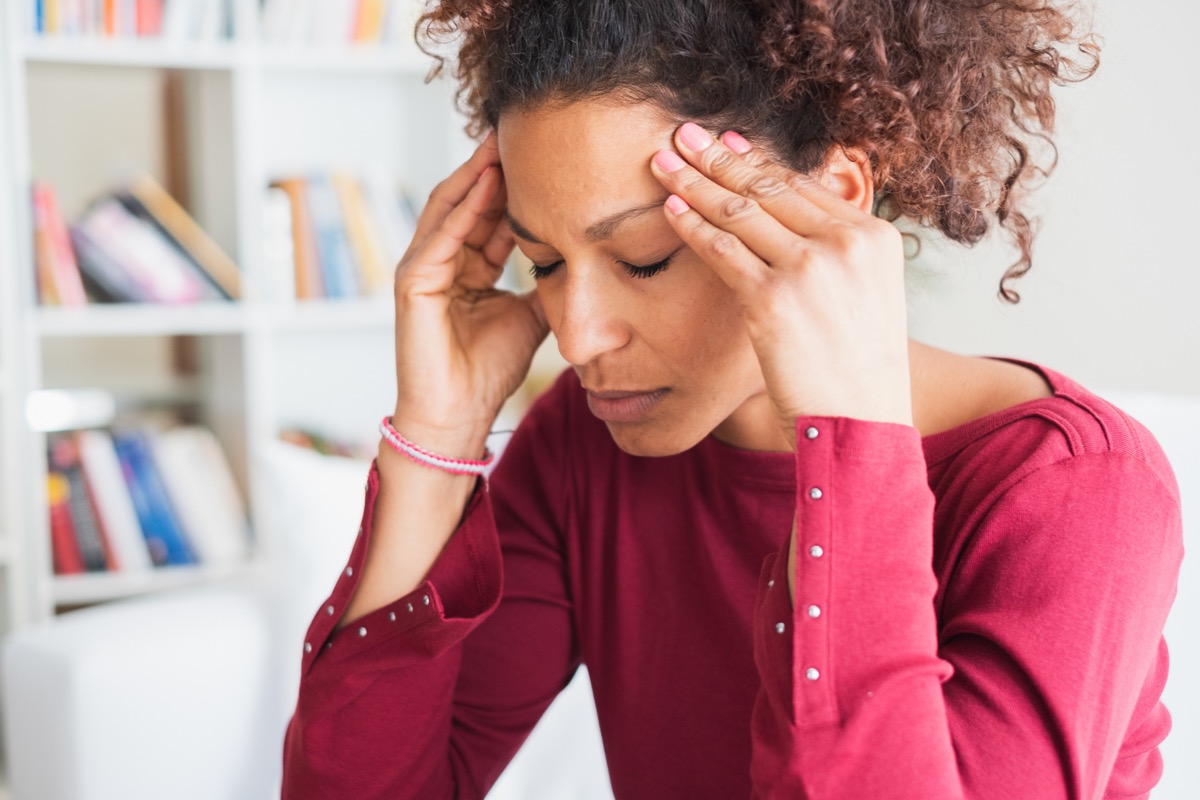
While the first step is to do everything you can to avoid CO poisoning, if worst comes to worst, you need to know the signs of this potentially deadly condition—especially since, as the First Alert pros warn, you can’t see or smell carbon monoxide. Symptoms of CO poisoning include headache, nausea, dizziness, weakness, chest pain, and vomiting. If you recognize any of these symptoms, immediately exit your home and call 911.
17
Make sure walkways and other outdoor areas of your home have adequate lighting.
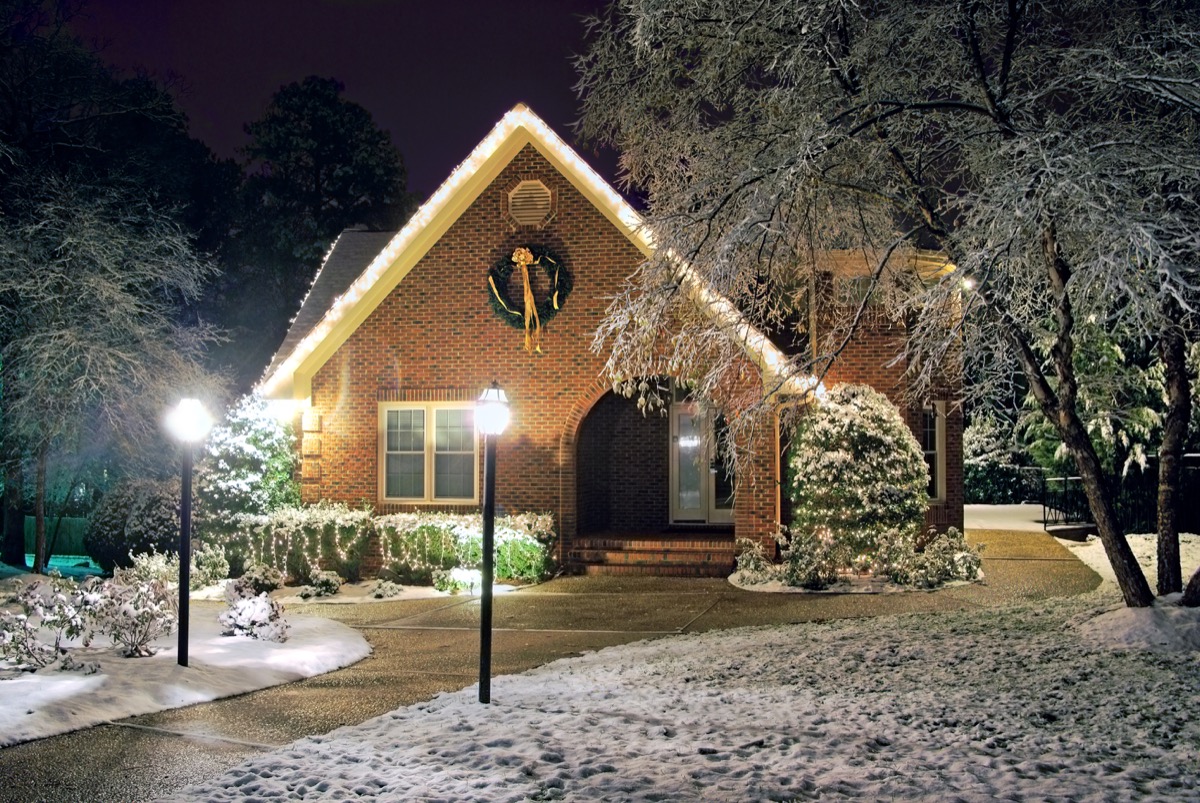
According to Jesse Harris, property manager at Medallion Capital Group, snow and darkness at the end of a long Christmas Day can create some serious risks. The walkways outside your home can be slippery, and it’s most likely dark when you get home from Christmas dinner. He says that homeowners should install lights with motion-detecting sensors to ensure “a well-lit path to your door without having to leave a light on all day.”
18
Use floor mats inside and outside of entryways.
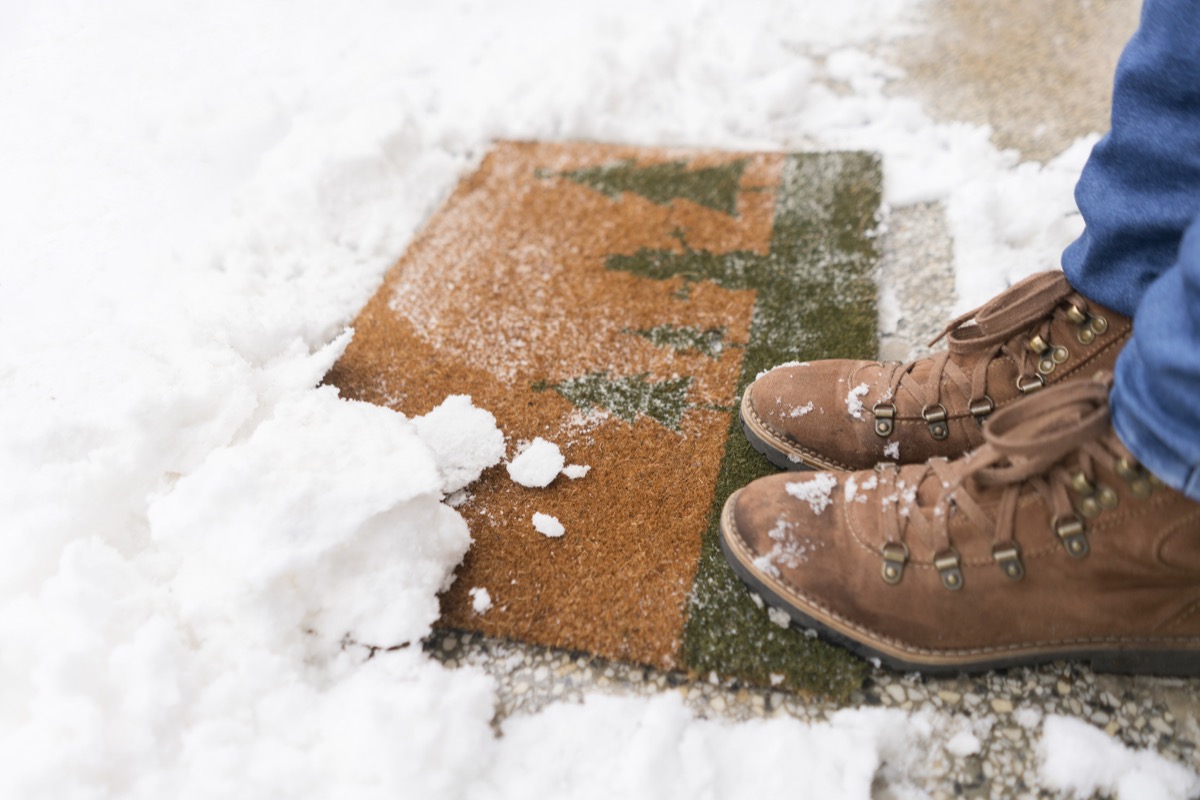
You should also be prepared with floor mats inside and outside your doors, says Richard Reina, maintenance expert at Tools ID. These mats prevent ice, snow, and salt from entering your home and keep family and friends from slipping or falling outside your home on Christmas. For any outdoor mats, Reina says you should invest in bristled ones to help clean off the bottom of shoes before anyone enters your home.
19
Turn off lights and other electronics before going to bed.

When all your guests leave on Christmas or you head back to your own home, you likely just want to hit the hay. But Ashley Peeling, regional marketing manager at CLV Group, says it’s pivotal to remember to turn everything off.
“Throughout the holidays, people have all kinds of festive decor that light up and space heaters to keep them warm,” she says. “If you don’t remember to turn these off when you go to bed, not only will your electrical bill skyrocket, but you’ll also be creating fire hazards.”
20
Invest in multiple power backups.
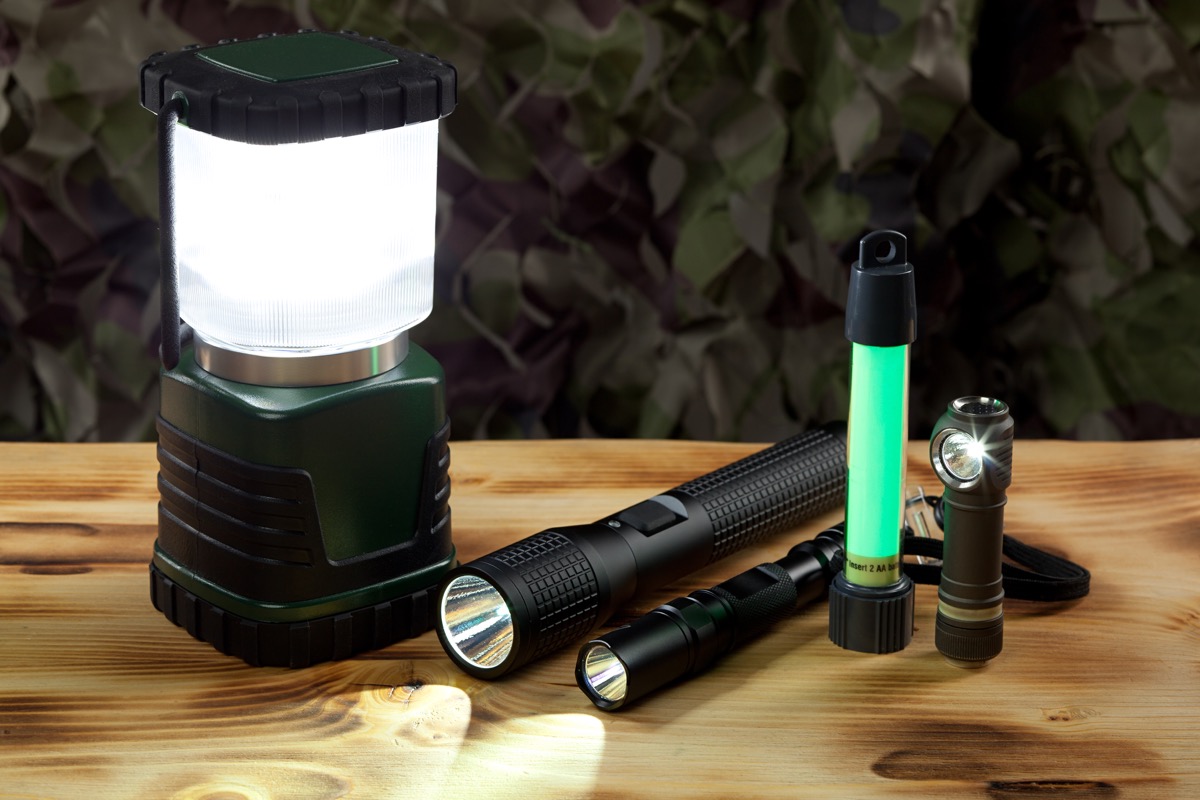
With heavy snow storms and possible fallen power lines, it’s extremely important to be prepared for an unexpected power outage during the Christmas season. To do this, the pros at Centriq, a home management app, recommend all homeowners invest in multiple flashlights, piles of batteries, lanterns, candles, and a generator.
21
Safely maintain your outdoor decorations.
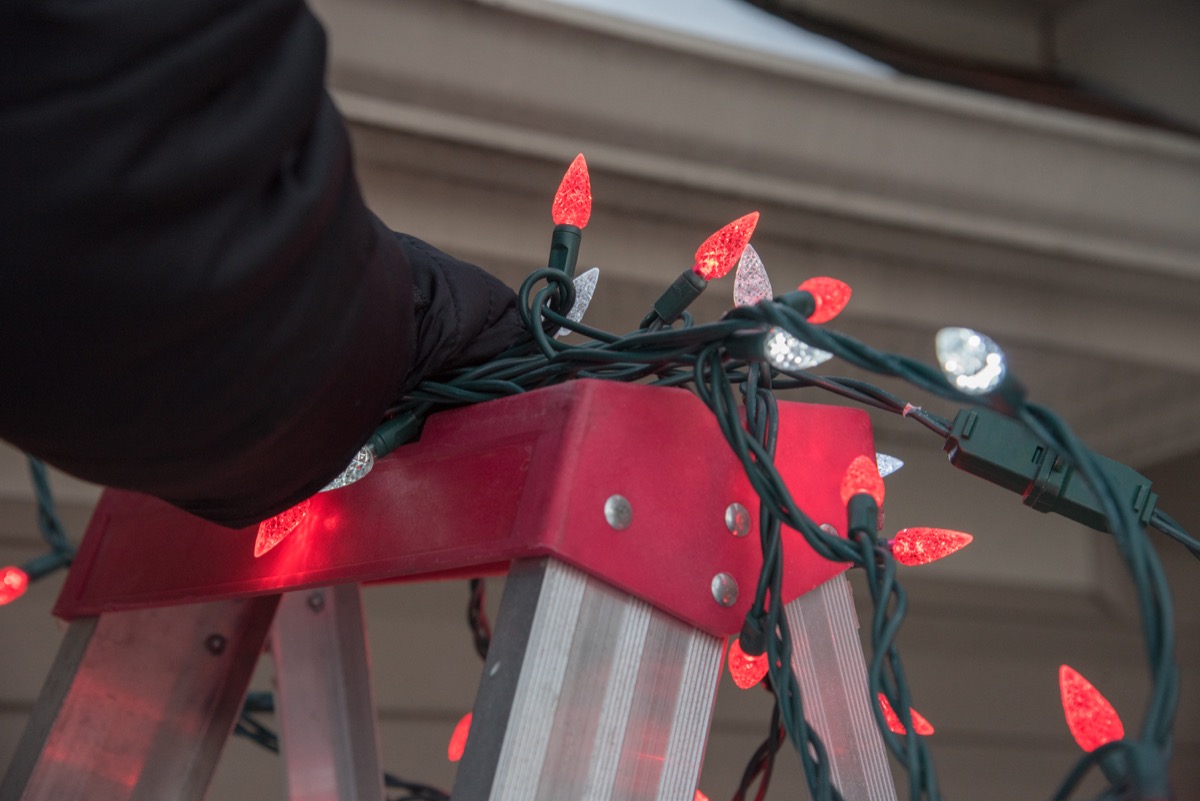
There’s no harm in decorating the outside of your home with dazzling Christmas lights, but make sure you’re taking the proper precautions. Alfred Bentley III, home safety expert and founder of vipHomeLink, says that homeowners should not allow outside decorations to be up for longer than 90 days. After all, they have been exposed to winter weather elements and critter attacks, so keeping them up any longer could lead to damaged wires, which put your home at risk of a fire.
22
Check your cords.
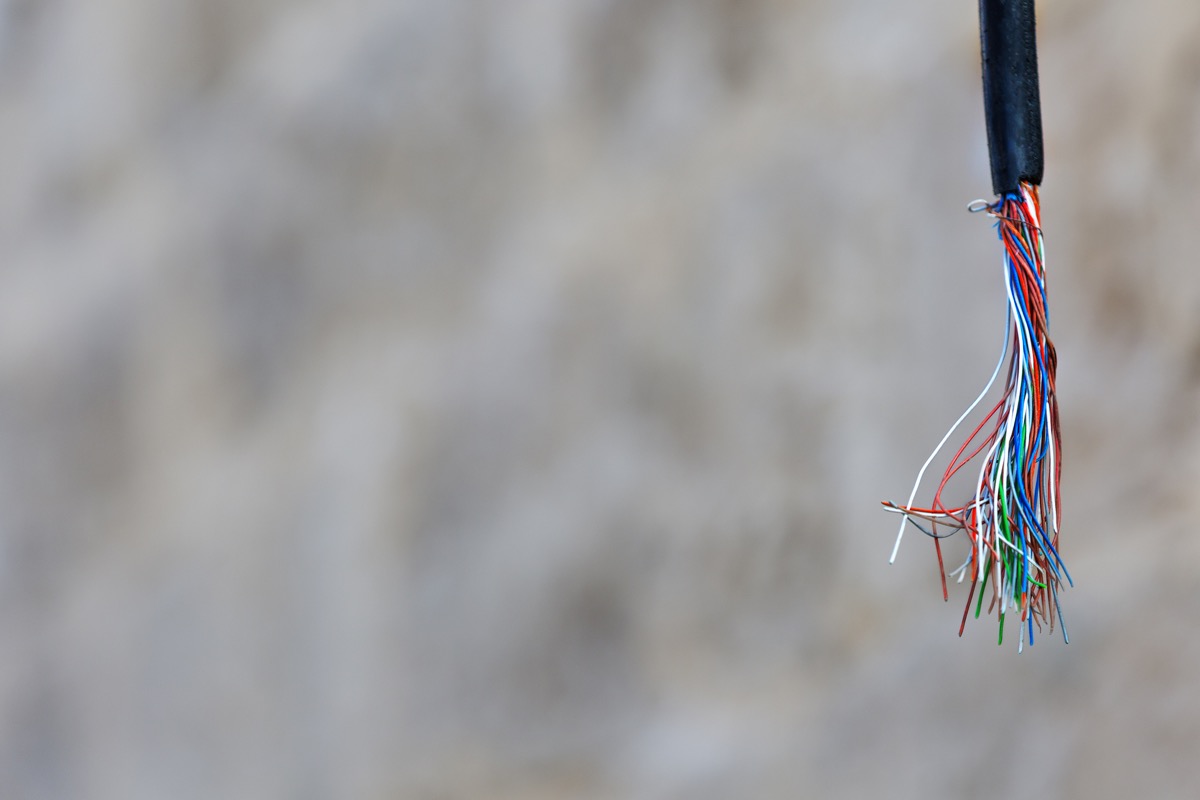
Outdoor lights are not the only wires to be wary of. Bentley says that you should check wires inside your home for frays or damage if they’ve been “pinched between furniture, placed under rugs, or squeezed in between windows or doors.”
23
Create and practice an emergency escape plan.
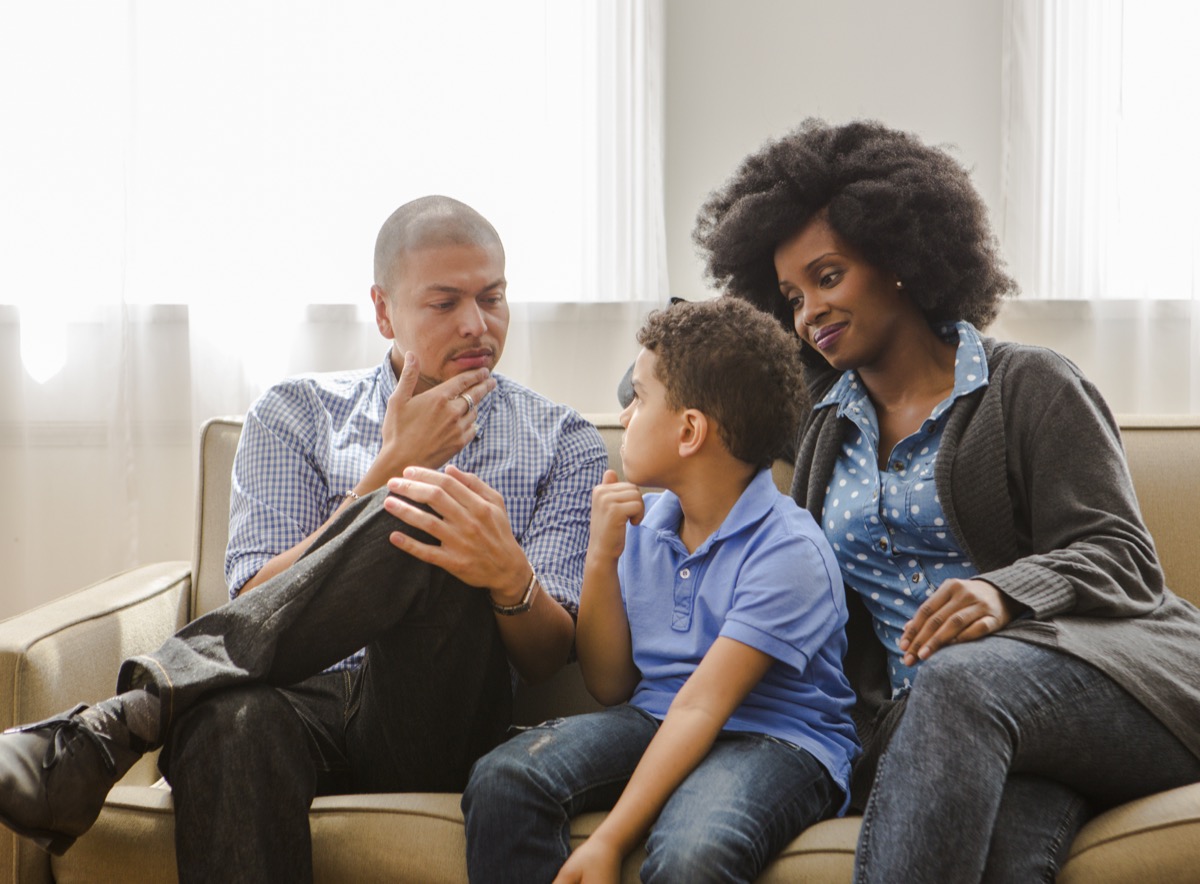
While no one wants to experience an emergency on Christmas, it’s best to have a plan in place should one occur. “Educate kids on how to handle scary situations and establish a shelter in your home, as well as a meeting place should you need to evacuate,” says Duncanson. “Make sure the primary exits are clear of any obstacles, especially Christmas trees or other holiday decorations, and don’t forget about your pets. Designate someone to be responsible for keeping them safe.”
Duncanson also suggests packing an emergency preparedness kit with food, water, necessary medications, important phone numbers, a first aid kit, flashlights with extra batteries, and blankets.